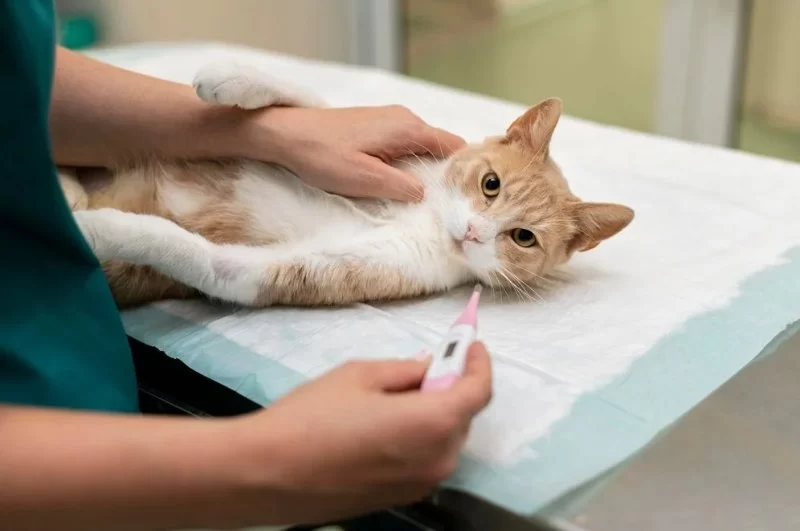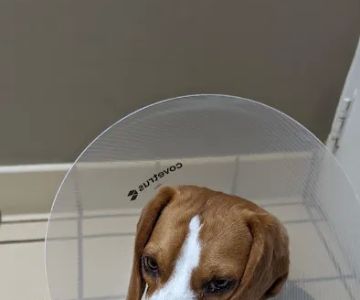- common-digestive-issues-in-pets - pet-digestive-problems
- vomiting-in-pets - pet-vomiting-causes
- diarrhea-in-pets - pet-diarrhea-treatment
- flatulence-in-pets - pet-gas-problems
- when-to-visit-the-vet-for-digestive-issues - pet-vet-care
Common Digestive Issues in Pets: Vomiting, Diarrhea, Flatulence
As pet owners, we want the best for our furry friends, and part of that is ensuring they are healthy and comfortable. However, digestive issues such as vomiting, diarrhea, and flatulence are common problems in pets, and understanding what they mean can help you take the appropriate action to address them. This guide will explore these common digestive issues, their causes, and when it's time to consult with a vet to ensure your pet's health.
Vomiting in Pets
Vomiting is a common digestive issue for both cats and dogs, and while occasional vomiting might not be a cause for concern, persistent or severe vomiting can signal an underlying problem. Let’s explore some of the common causes and when you should seek professional help.
1. Causes of Vomiting in Pets
Vomiting in pets can be triggered by a variety of factors, ranging from something as simple as overeating to more serious medical conditions. Here are some common causes of vomiting in pets:
1.1. Dietary Issues
Pets often vomit when they eat too quickly, consume something that doesn’t agree with their stomach, or eat something they shouldn’t (such as trash or toxic plants). Changes in their diet, such as introducing new foods, can also cause digestive upset.
1.2. Infections and Parasites
Infections, including viral or bacterial infections, or internal parasites can cause vomiting. If your pet is vomiting frequently, this could indicate an infection that requires veterinary treatment.
1.3. Serious Medical Conditions
Chronic vomiting can be a sign of more serious issues like liver disease, kidney disease, pancreatitis, or gastrointestinal obstructions. If your pet has been vomiting for an extended period or showing other symptoms like lethargy or loss of appetite, it’s important to consult with a veterinarian as soon as possible.
2. When to Seek Veterinary Help for Vomiting
If your pet vomits occasionally and seems to recover quickly, this might not be a concern. However, if vomiting is persistent, severe, or accompanied by other symptoms like diarrhea, dehydration, or lethargy, it’s time to get professional help. Visit your vet or an emergency clinic if:
- Vomiting lasts more than 24 hours.
- Your pet is lethargic or refuses to eat or drink.
- There is blood in the vomit or stool.
Diarrhea in Pets
Diarrhea is another common digestive issue that can affect pets. It can range from mild and transient to severe and persistent. Understanding the underlying cause of diarrhea can help you determine how to treat it.
1. Causes of Diarrhea in Pets
Diarrhea in pets is often caused by dietary indiscretion, but it can also be a sign of more serious conditions. Here are the common causes of diarrhea in pets:
1.1. Dietary Changes and Food Sensitivities
If you’ve recently changed your pet's food or given them table scraps or new treats, this can result in digestive upset, leading to diarrhea. Some pets also have food sensitivities or allergies that trigger digestive distress.
1.2. Infections and Parasites
Bacterial or viral infections and parasites are common causes of diarrhea in pets. Giardia, roundworms, and coccidia are examples of parasites that can lead to digestive issues. Infections typically cause diarrhea accompanied by other symptoms, like vomiting or fever.
1.3. Stress and Anxiety
Stress and anxiety can also affect your pet’s digestive system, leading to diarrhea. Moving to a new home, a change in routine, or a visit to the vet can cause temporary stress that leads to an upset stomach.
2. When to Seek Veterinary Help for Diarrhea
While mild diarrhea often resolves on its own, it’s important to monitor your pet closely. If diarrhea persists for more than 24-48 hours or if it’s accompanied by other symptoms like vomiting, lethargy, or blood in the stool, it’s time to consult a vet.
Flatulence in Pets
Flatulence, or excessive gas, is another common digestive issue that many pets face. While some degree of flatulence is normal, excessive gas can be a sign of an underlying digestive problem.
1. Causes of Flatulence in Pets
Flatulence in pets can be caused by a variety of factors. Here are some of the most common causes:
1.1. Diet and Eating Habits
Certain foods, such as beans, dairy, or high-fiber diets, can contribute to gas in pets. Additionally, pets that eat too quickly or gulp air while eating may experience more gas.
1.2. Gastrointestinal Disorders
Conditions such as irritable bowel syndrome (IBS), food intolerances, or inflammatory bowel disease (IBD) can lead to excessive flatulence in pets. If your pet’s gas is accompanied by other symptoms like diarrhea or vomiting, these conditions should be considered.
1.3. Swallowed Air
Pets that eat too quickly or anxiously may swallow air, which can lead to bloating and excessive gas. Using slow feeder bowls or teaching your pet to eat more slowly can help reduce this issue.
2. When to Seek Veterinary Help for Flatulence
If your pet’s flatulence is accompanied by other symptoms such as diarrhea, vomiting, or changes in appetite, it’s best to consult with a veterinarian. Excessive gas may indicate a more serious digestive issue that requires treatment.
When to Visit the Vet for Digestive Issues
While mild digestive issues like occasional vomiting, diarrhea, or flatulence might not be cause for alarm, persistent or severe symptoms require veterinary attention. If your pet exhibits any of the following, it’s time to consult a professional:
- Frequent vomiting or diarrhea lasting more than 24-48 hours.
- Blood in vomit or stool.
- Loss of appetite, lethargy, or dehydration.
- Persistent flatulence that doesn’t resolve with dietary changes or medication.
At Hidden Brook Veterinary, we understand the importance of keeping your pet’s digestive system healthy. If your pet is experiencing any of the digestive issues mentioned, our team of experts can help diagnose the issue and recommend the best course of treatment.












